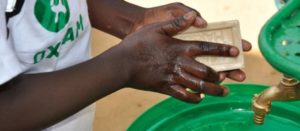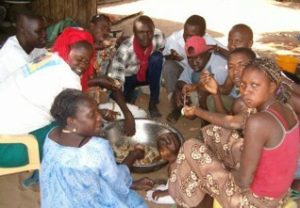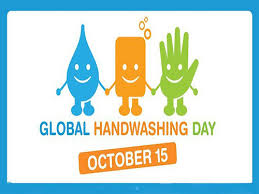When I was a child just before eating, my mother or my father would always ask my brothers and myself to wash our hands. All we had to do was to go to the bathroom, take the big bar of soap and rub our hands together under the water flowing from the faucet. It was so easy!

Do you know that every 20 seconds a child dies due to a lack of safe water and poor sanitation?
This Saturday, October 15th, is Global Handwashing Day. In many countries initiatives are organized for children and adults to learn to wash their hands before taking their meals. This is particularly important in countries where meals are served in one dish and where families use their hands to eat.
At Bouassa, access to water is only the first step to hygiene. As you know, we want to build latrines and showers that neighborhood children will have access to, at least once a day. We hope to get funding for this project soon. Next week we will have also an important meeting with the leaders of a company to finalize their financial mobilization for phase 2 of the Bouassa project!
But it still will not be enough. We must educate and support children and parents so their hygiene habits change.
And you can help change this by specifically donating for soap (which includes toothpaste and toothbrushes). Your donations will help purchase the soap products that will allow the two ladies heading up this project to begin their advocacy for proper basic hygiene! To do this, go to www.bouassa.org/en website and make a donation (we would like to mobilize €1,000 for this aspect of the project). Don’t forget to specify the purpose of your gifts and thank you for your help!
And do not forget, October 15th: WASH YOUR HANDS!
THE SOLUTION:
ONE WELL PER VILLAGE:
We believe people, not water, can change everything! When you sponsor Well Drilling Project in Burkina Faso, Africa you’ll unlock the potential of an entire community! #Burkina
Bouassa’s goals:
- Promote access to water for the local population
- Help families and children in distress
- Develop economic activities in line with access to water
- Participate actively in the city’s “Community Development Plan”
- Raise awareness in economic management of water and sanitation
- Accompany children for better personal hygiene, reducing sickness



